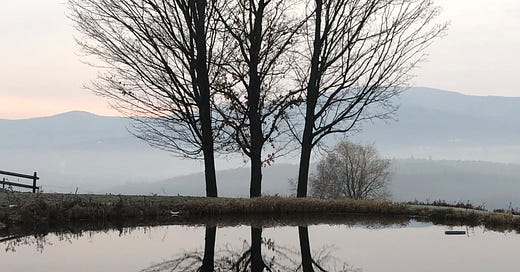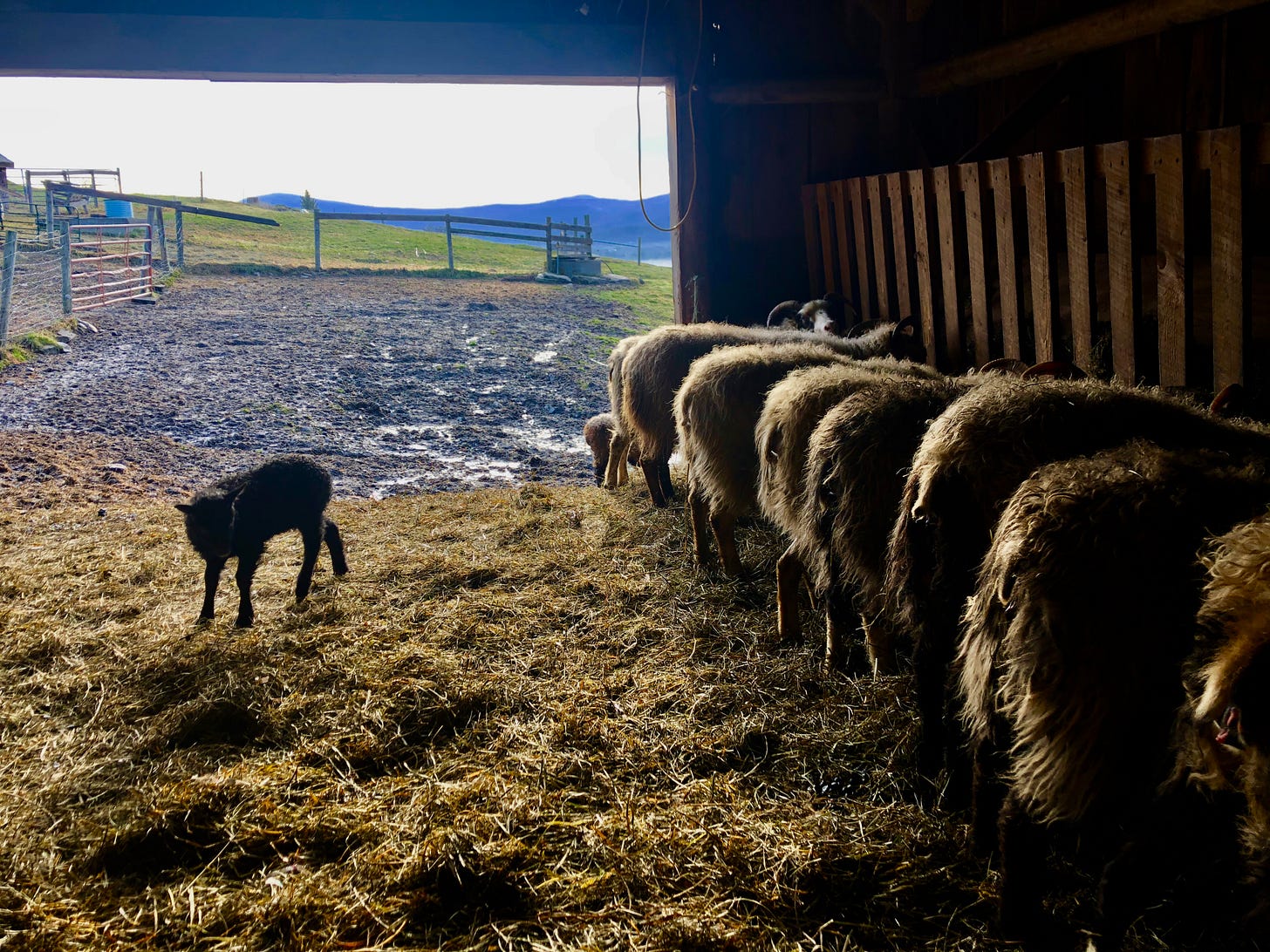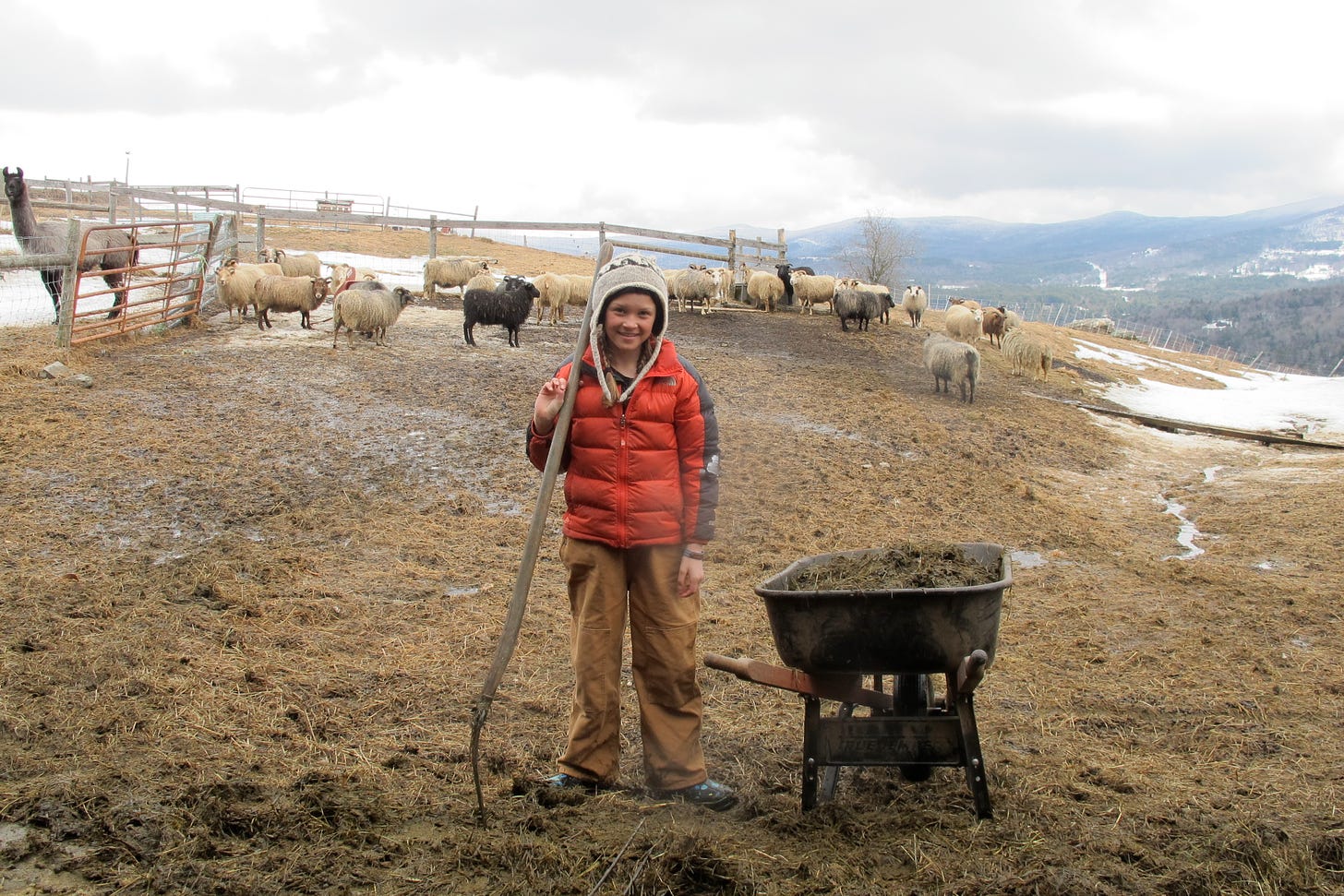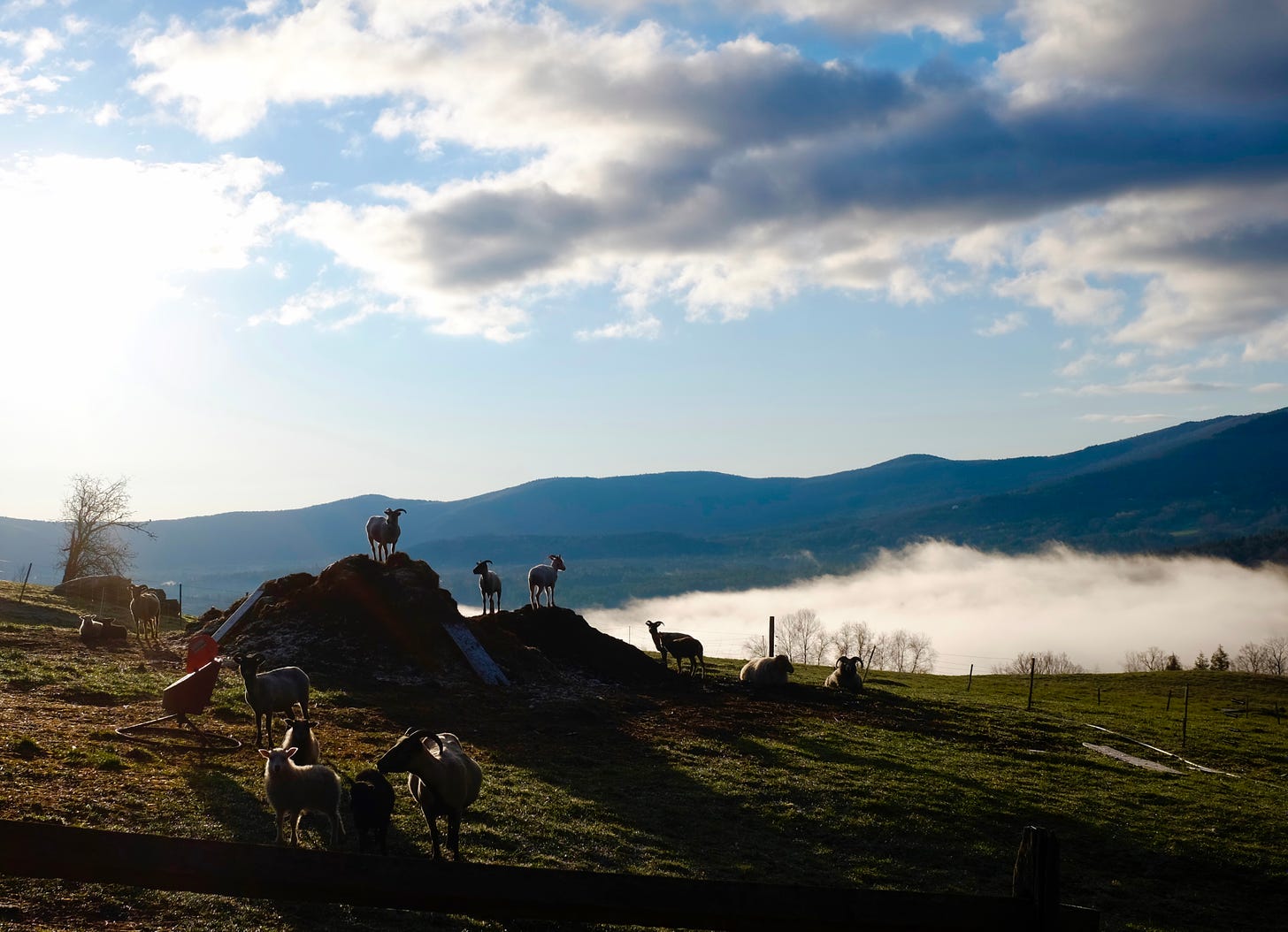It's early March. Strangely, the snow is gone. Utterly gone. I look out from my writing desk on brown fields wrapped in mist and a pond like a open eye, reflecting bare trees. I wander out to feed the sheep and notice that the chickadees, our most enduring and endearing of winter companions, have changed to their spring song, one high note and one low, as if saying, 'waaaake-uuuup.'
The sheep mamas are rotund and heavy, sinking into the mud of the barnyard swale as they follow me with my load of fragrant hay to a higher, drier place. The chickens flap and leap over the puddles, eager for a seed. Another three weeks and the lambs will start to come, following the arrival of robins and just before the migration of wood frogs and peepers to the pond…though I sense the cycles are off this year, that nothing might go as planned. I feel this as I feel an ache in my joints on a day full of rain. Everything is connected and somehow off-kilter at the same time.
At Town Meeting yesterday, all the talk was about mud. Neighbors comparing their plight: which road do you take to town? How is it up your way? Comparing strategies for driving the ruts (slow or fast, stay high or stay low) which in some places are deep enough to swallow a car to the axles. Bottoming out, we call that. Keep your tall rubber boots in the car. And maybe a winch.
Ned, a most chickadee-like man in his eighties, said this year is worse than he'd ever seen it. Peter and I caught up with him as the meeting was being called to order; we admired his red silk scarf tied sailor style, prompting him to show off his beautiful vest with a liner made of real fleece. "They stopped making these in 1935," he said. But the mud...worse than he'd ever seen it, he said. Might have to drive the tractor to get anywhere.
Jared spoke first. Jared, who has been a selectman for twenty-something years and is retiring. He's eloquent, funny, deeply kind, and always sets a tone of appreciation for everyone and for the tradition of coming together to solve problems; he will be missed. "This is the 219th meeting of the town of Fayston," he began. "The first officers of the town were elected in 1805....and I wasn't one of them." And then he went on to talk about the roads. And the need for a new grader. Always there has been mud. "These roads were laid out in the mid 1800s for horse and buggy, which are light contraptions," Jared said. "Now we have several mud seasons a year and drive huge SUVs and construction vehicles so our roads take a beating."
We have some old, frail buggies in our barn that are 200 years old. I'm thinking that navigating spring in Vermont in one of those contraptions pulled by an intelligent four-footed animal lurching and picking her way around obstacles might have been a terrifying challenge as well. The state of the dirt roads in spring may be one of the few things that cuts across all centuries and all social divides in Vermont. It's not a Noah Kahn nostalgia-fest. Mud season is like an annual natural disaster that we all share and help each other get through. Take away mud season and town meeting and I have no doubt that Vermont would lose its essence of civility.
Jared is talking now about a project that was particularly contentious in town, preserving a long abandoned homestead hill farm for a public park. "We could argue passionately at the table because outside of the table we take care of each other," he said. "When you come back the next time, the person you were arguing with might be your ally. We want to keep this tradition going," he said, sweeping his arm across the town meeting, "because outside of here it’s a mess." Ashay.
Peter, who is a Justice of the Peace, stayed late at the school to count ballots. (Nikki Haley won in Vermont, y'all, speaking of Vermont not appreciating the uncivil.) I came home and spent a couple of hours hauling the bedding pack from the sheep shed out to the manure pile, trudging through mud on my way in and my way out. A light rain came down. I shed my coat and hat, and the cool rain felt good on my neck as I worked. I forked the hay and manure into a sled made out of a plastic oil barrel cut in half and fitted with a pull rope. It was made and given to us by Ned and christened the Ned Sled. It is a bit tippy when loaded, being a barrel, but it's brilliant for skidding over the mud or snow when a wheelbarrow was mighty strenuous (we long knew) and the tractor would bog down. Ned knows his tools.
Load by load, one pitchfork at a time, we (including Wren (pictured above) and Peter, and others) haul the muck of winter out to the pile where it will ferment and cook and combust in a brilliant alchemy of decomposition and resurrection, decay becoming life. It's one of those forever jobs where you surrender the idea of finishing; achievement makes no sense in this type of work, but perseverance does. I make it a goal of five loads a day, and it beats going to the gym.
I feel like Sisyphus, cheating death. This muck will become the fertile black compost we spread on the fields when the spring rains have come and gone, when the mud no longer bogs us down. It will make the fields a luxurious green for the sheep and their growing lambs, and for our neighbors who will come and picnic in the grass. However and whenever the next season comes, we will do our best to be ready.








I so enjoy your writing.